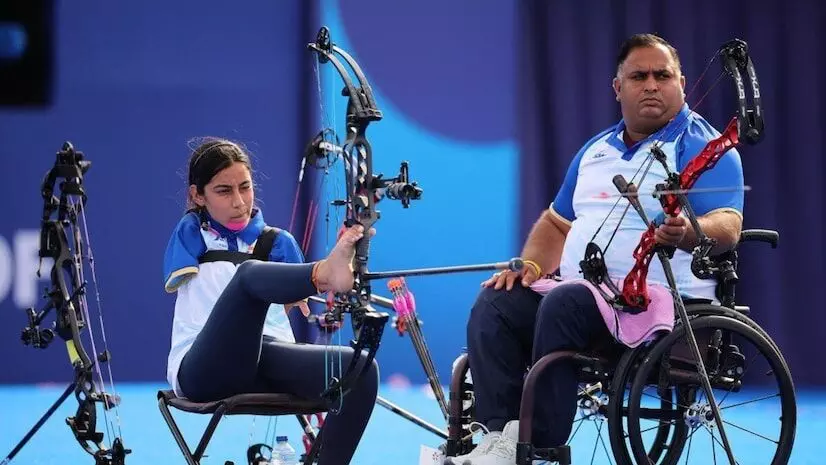Activists calls for more investment in parasports following India's historic paralympics medal haul
The National Platform for the Rights of the Disabled urged the government to invest more in parasports
By Newsmeter Network
New Delhi: Disability rights activists and organisations are calling for increased investment in parasports following India's record-breaking performance at the Paris Paralympics, where the nation's athletes clinched 29 medals, surpassing the previous best tally at the Tokyo Games.
Arman Ali, a prominent disability rights activist and executive director of the National Centre for Promotion of Employment for Disabled People (NCPEDP), emphasised the struggle faced by Persons with Disabilities (PwD) in the country, both in sports and daily life.
"We perform better because we have no other choice — it's survival for us. Whether it's about securing a job or excelling in sports, we fight with the lack of basic facilities," Ali told PTI, pointing out the challenges para-athletes face in accessing adequate training venues.
Ali questioned the disparity in media coverage for para-athletes compared to cricketers, stating, "Would they get the same recognition as cricketers do, whether it is advertising or media attention?”
Ali also urged for more initiatives not just in major cities such as Delhi and Mumbai but also in rural areas, stressing that despite paying taxes and living in a free country, disabled individuals are often overlooked when it comes to policymaking and infrastructure.
"People should take notice — getting 'inspired' is not enough," he added, advocating for a systemic change in the treatment and perception towards PwDs in sports.
The National Platform for the Rights of the Disabled (NPRD) echoed Ali's sentiments, urging the government to build on the success in Paris and invest more in parasports.
The organisation noted that India's para-athletes, many from disadvantaged backgrounds, managed to excel despite facing stigma, discrimination, and limited financial support. They credited the athletes' resilience for the historic achievement but stressed that more needs to be done to provide equal opportunities.
Citing China's dominance at the Paralympics, where they secured 220 medals, the NPRD pointed to the comprehensive support system in place for disabled athletes in other countries. They called for similar early talent scouting, training programs, and parity in sports facilities for Indian para-athletes.
The NPRD, in a statement, also highlighted the importance of promoting parasports in schools and educational institutions and demanded that para-athletes receive the same recognition, rewards, and media coverage as their able-bodied peers.
In a critical statement, the NPRD urged the dismantling of the "political-bureaucratic nexus" that controls disability sports in India, advocating for a more transparent and democratic system that empowers athletes to succeed on a level-playing field.
The calls for change come at a time when India's para-athletes are riding a wave of success, but advocates stress that long-term growth and success depend on sustained investment and structural reforms.